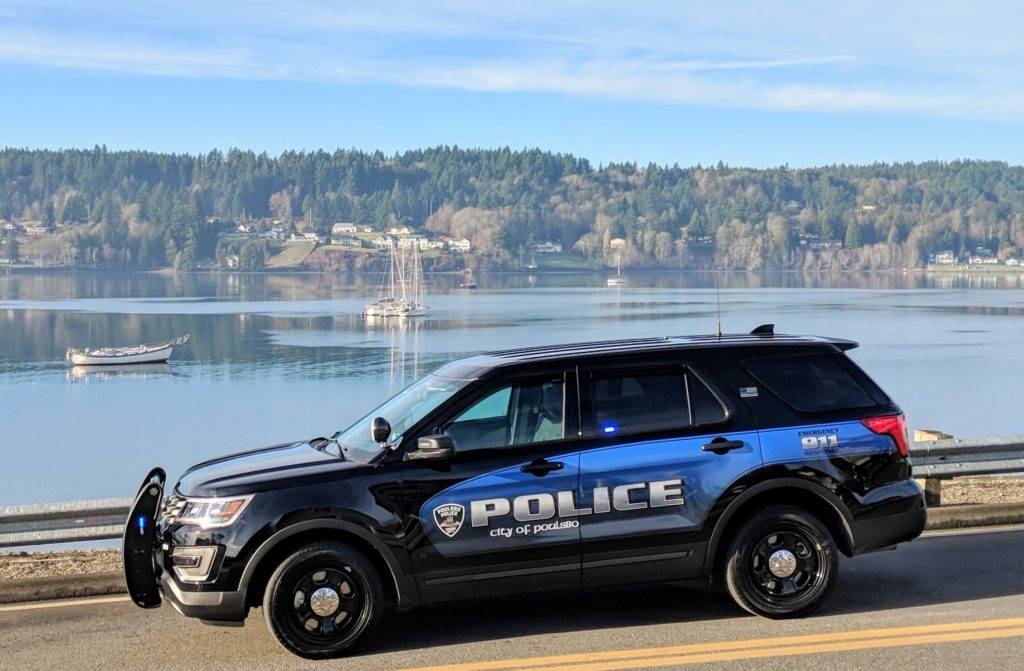In 2018, the Poulsbo Police Department began partnering behavioral health navigators from Poulsbo’s Behavioral Health Outreach Program with law enforcement in the field. Through the partnership, individuals contacted by police are given the opportunity for referral to services for treatment, rather than simply being arrested.
The Behavioral Health Outreach Program initially began in the court system, with navigators helping contacts negotiate the complicated legal process. Thanks to the Bremerton Police Department requesting its own navigator in 2017, the program has evolved into a police partnership program.
The partnership between navigators and police was met with such success that it has recently been extended to police departments in Bainbridge Island and Port Orchard through inter-local agreements.
Poulsbo Police Department and the City of Poulsbo agreed that cooperative use of the Navigator program is a benefit to all participating agencies.
The program allows for police officers to ask Navigators for assistance when they identify people with behavioral health issues (mostly related to mental health or substance abuse) who need help connecting to treatment facilities or other services.
“While the Navigators don’t provide treatment, they help people find and access what they need,” said Kimberly Hendrickson, project manager for the City of Poulsbo’s Behavioral Health Outreach Program.
Hendrickson helped establish the program, which is funded primarily through the Kitsap County Treatment Sales Tax, with additional funding coming from participating cities.
“Our programs focus is to help folks with mental health disorders and addiction navigate the justice and court system and get the help that they need,” Hendrickson said.
“We think this approach is more effective for a number of reasons, mostly having to do with early intervention. We want to connect people to care, when possible, before a crime or crisis occurs,” Hendrickson said.
Mental health programs like this are becoming increasingly popular with police departments across the country. There are at least 15 co-responder programs in Washington state, Hendrickson said.
“I think the reason programs like ours are developing is that law enforcement is starting to see themselves as an important part of the health care system,” she said.
Examples of those needing help include people calling 911 when they need help with a suicidal family member or see someone struggling with a mental disorder, or those needing help managing their own symptoms.
“Law enforcement wants to respond to these calls humanely and effectively, and direct people to the care they need. Navigators help officers with this part of the job and add value to the effort,” Hendrickson said.
Navigators are hired as police department employees and work in the field with officers. They undergo an extensive background check and vetting process as well as 40 hours of crisis intervention training. They are also trained in law enforcement systems procedure and policy.
“Navigators are walking Rolodexes. They refer people to mental health treatment, substance use treatment, primary health care treatment, crisis services, victim services, youth services, elder services, veterans services, therapeutic courts, shelters, housing agencies and more,” Hendrickson said.
Recently, a Navigator in Port Orchard helped some homeless youth find donated school supplies. In Bremerton, a Navigator helped an individual find affordable car repair services.
“The underlying idea here is that the likelihood of further police contact and crisis is reduced when people are connected to services and care,” Hendrickson said.



